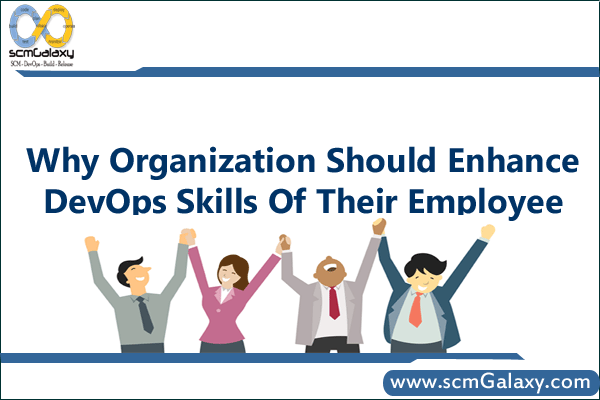

It’s not shocking that a lot of organizations struggle when it comes to DevOps execution. DevOps is a new conception which IT organizations use to enhance collaboration between two functions into one. In today’s cutthroat business environment, DevOps comes as an important resolution that helps organizations meet ever-growing business demands.
The meaning of DevOps is different for different peoples. Some says it’s a “collaboration of operations and developers” or it’s using automation or it is a toolchain approach or culture or a job title or it’s just a Dev. and Ops. or variety of related things. But if we look onto it, it’s not just a set of tools or not just a culture or job title. We can say It is a way of doing work where people of both operations and developer skill sets work together on projects to create quality products without wasting resources and infrastructure in a short span of time by using best practices of tools.
There are many organizations in the world who are adopting DevOps to enhance their employee Performances and revenues and profitability of their business. There are many studies done till date where it is clearly shown that where companies implement the DevOps approach get more done, plain & simple. The greatest change in approach in a DevOps environment is that there is a single group made out of cross functional members including operations architects, business expert, DBA’s, QA, developers and so forth. There are many advantages of collaboration among these different roles delivers.
If we look on to benefits there are:-
1. Continuous software delivery
2. Less complex problems to fix
3. Faster resolution of problems
4. Faster delivery of features
5. More stable operating environments
6. More time available to add value (rather than fix/maintain)
To accomplish this, Dev and Ops must break the silos and work together with each other, share liability for keeping up the framework that runs the product, and set up the product to keep running on the framework with continuous quality input and delivery automation.
In this process there are so many tools and practices used to achieve the results. Source Code Repository, Build Server, Configuration Management, Virtual Infrastructure, Test Automation and Pipeline Orchestration any many more in the process.
DevOps is certainly a group activity, however it’s still vital to clearly define once roles and liabilities for accomplishment inside the group. Means to say it is really important for organizations to make sure dev and ops teams are collaborating and sharing responsibilities throughout the software delivery lifecycle from planning all the way to managing the production environment.
Now the real problem is that there are various challenges an organization and their employee’s face when they trying to execute DevOps skills because they do not able to overcome the Developers and Operations mentality and unable to do continuous balance and change of work process, they lack of understanding the security and access management, unable to do continuous monitoring, Toochain cashes of Developers and operations and various others problems they face when they try to implement it on their projects. To overcome these challenges organization’s must provide their employees DevOps skills from industry experts. Now to make your job easy I did some research on it and found one portal “DevOps Consulting” where you can get best industry trainers and consultants for corporate and individual training.
- Installing Jupyter: Get up and running on your computer - November 2, 2024
- An Introduction of SymOps by SymOps.com - October 30, 2024
- Introduction to System Operations (SymOps) - October 30, 2024

